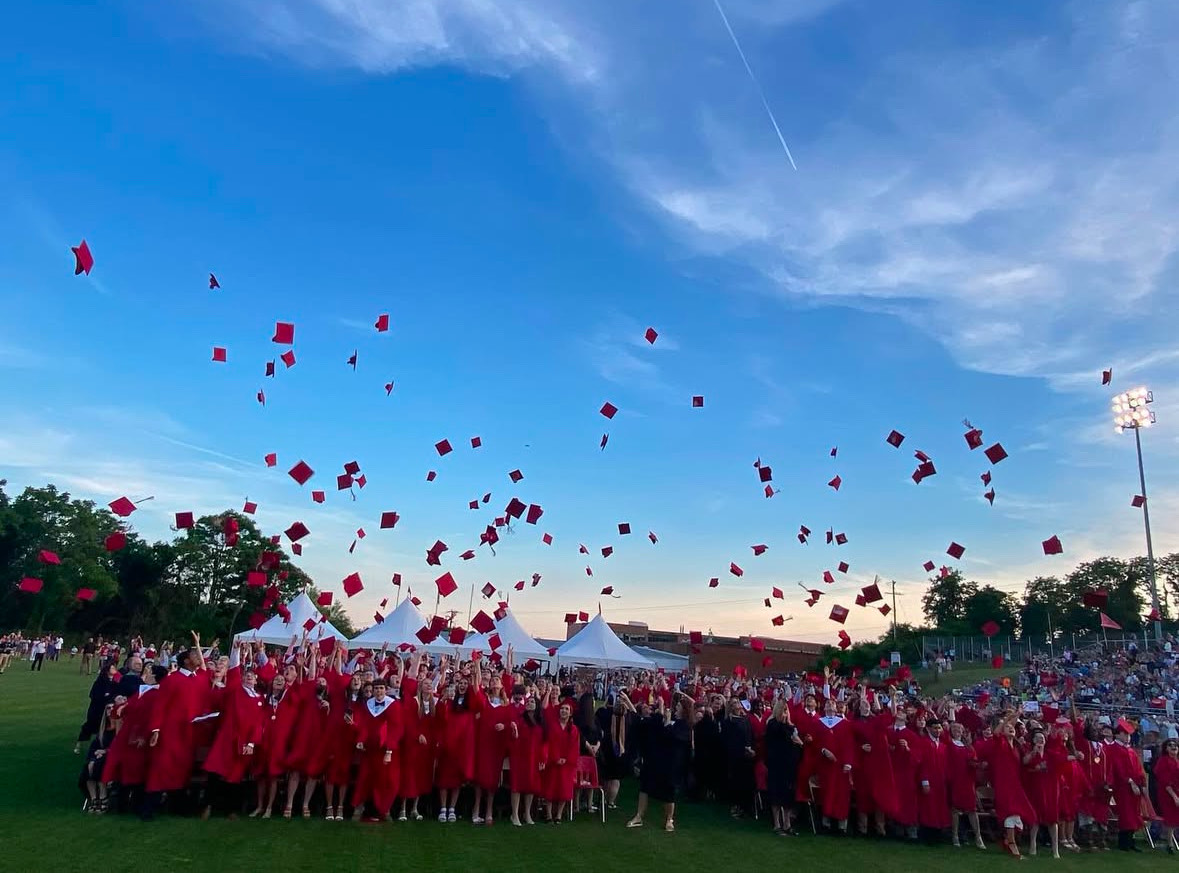As the end of Dec. creeps by, the beginning of winter break worms ever closer. At this time, most students are preparing for final exams and anticipating a new semester. For some students, this first semester marks the end of their high school journey, as they are set to graduate early – either at the end of their junior year or the middle of their senior year. How is this possible? Well, Fauquier High School (FHS) offers an excellent opportunity for students to complete their studies in an accelerated timeline, allowing them to graduate in three to three-and-a-half years. However, this procedure presents several subtleties that not everyone is aware of.
Primarily, it is worth clarifying that there is also early completion in addition to the familiar early graduation. The difference between the two is quite simple: early graduation means graduating after three years (junior year) of high school in May. Early completion is when a student completes all of their coursework and accumulates enough credits at the end of the first semester of their senior year. So, according to FHS Counselor Heather Harris, who is in charge of early graduation procedures, “[Students] do not have to…abide by compulsory education laws to attend school the second semester of their senior year.” However, these students can still participate in school events such as prom or graduation ceremonies.
According to Harris, if a student wants to be an early graduate, they must apply for it in the second semester of their sophomore year. They have to fill out a Google form, then write a letter to the counselor voicing the student’s reasons for early graduation, and last but not least, a letter from the parents stating their support for the decision. The process for early completion is much more simple. A student may consider early graduation as late as their junior year. Still, requesting this procedure before the summer of their senior year is essential so that all the necessary courses can be scheduled for that student’s first semester of senior year.
There are plenty of reasons why students choose to graduate early. The most common are usually finance, personal matters, military reasons or community college. A prime example of the latter is a senior, Julia Green, who is an early graduate. Technically, she should be a junior now, but she has jumped grades because of her excellent course grades and necessary credits. Her dream profession is nursing, which is what prompted her to make this decision to graduate early. She shared that she’s currently taking a Certified Nursing Assistant (CNA) class, and in December, she’ll officially become a CNA. “Then I’m gonna go to Laurel Ridge [community college] for two years and become a Registered Nurse (RN) and then transfer after that,” Green added. On the other hand, one of the FHS students, senior Brayden Carter, is an early completion student who will commit his immediate future to the military, specifically the Marines. Senior Jack Gwennap, however, is planning on graduating after three full years at FHS because of his plans to enter flight school to build a career as a commercial pilot. A decision made because of his “love of airplanes.”
While early high school graduation can be a ticket to a successful future for some, it is crucial to consider the pitfalls. Most notable is college, specifically the chances of being accepted. As Harris explained, “Some colleges may not look highly on an applicant who does [early graduation]. The reason they look at it is that you’re doing the minimum of what you need…versus [taking] full advantage of all the classes that [FHS] offers.” Because universities often look at the strength of a student’s schedule, which is hard to have if one is going to graduate early since that student doesn’t even have the opportunity to be in the top decile. In that case, it’s essential to consider that “depending on what a student’s plan is for afterward…they need to check with those particular schools to see how [early graduation] is viewed,” as Harris added.





![Senior and Foreign Exchange Student, Alexandria [Sasha] Pavalache, poses happily for the camera.](https://fhsfalconer.com/wp-content/uploads/2025/11/HSWSvqEqu0Spt3QOytxhKNyg7oFrQjcHePZcAOeK-e1763132685150-800x1200.jpg)


